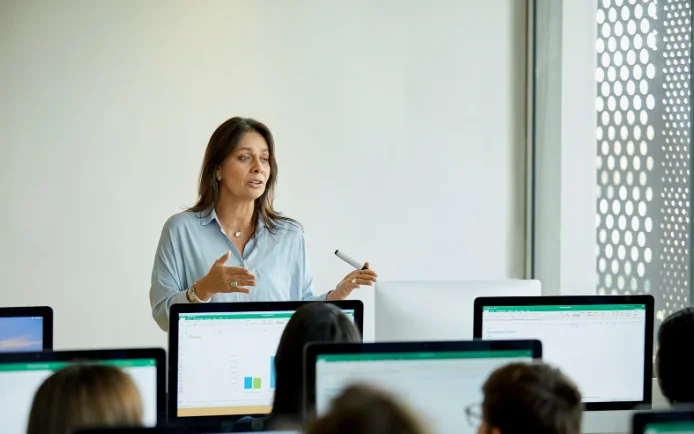In today’s fast-paced digital age, education has undergone a significant transformation. With the advent of online learning, virtual classrooms, and digital tools, teachers and students find themselves navigating a new educational landscape. Amidst this change, building strong teacher-student relationships remains as crucial as ever. Here we will explore the importance of teacher-student relationships in the digital age and provide practical tips on how educators can foster these connections effectively.
The Significance of Teacher-Student Relationships
- Emotional Support: A strong teacher-student relationship can provide students with the emotional support they need to thrive academically and personally. In the digital realm, where face-to-face interactions are limited, these bonds become even more vital.
- Increased Engagement: Students who feel connected to their teachers are more likely to actively engage in their learning. Digital tools can enhance engagement when combined with a supportive relationship.
- Personalized Learning: Teachers who know their students well can tailor their instruction to meet individual needs, promoting better learning outcomes.
- Improved Communication: Open and trust-based relationships facilitate communication, helping both parties address concerns, questions, and challenges effectively.
Tips for Building Strong Relationships in the Digital Age
- Create a Welcoming Virtual Space:
- Set clear expectations for online behavior and etiquette.
- Use a user-friendly learning management system (LMS) to provide a structured environment.
- Share a welcoming video introduction to yourself and the virtual classroom.
- Foster Open Communication:
- Maintain regular virtual office hours for students to ask questions or seek assistance.
- Encourage students to ask questions or share their thoughts in discussion forums, chats, or emails.
- Respond promptly to student inquiries to demonstrate your commitment to their success.
- Get to Know Your Students:
- Use online surveys or icebreaker activities to learn about students’ interests, learning preferences, and goals.
- Keep a digital journal or notes about each student’s progress, challenges, and achievements to personalize your interactions.
- Offer Constructive Feedback:
- Provide specific, timely, and constructive feedback on assignments and assessments.
- Acknowledge students’ efforts and offer guidance for improvement.
- Use digital tools for video or audio feedback to make interactions more personal.
- Incorporate Interactive Elements:
- Use video conferences for live discussions, Q&A sessions, and virtual field trips.
- Encourage peer collaboration through group projects or online forums.
- Gamify lessons or assignments to make learning enjoyable and interactive.
- Be Mindful of Student Well-Being:
- Recognize signs of stress or burnout in students and offer resources or referrals to support services.
- Promote digital wellness by encouraging breaks, screen-time balance, and healthy study habits.
- Celebrate Achievements:
- Publicly recognize student achievements, both academic and non-academic, in the virtual classroom.
- Create virtual “awards” or certificates to commemorate milestones and successes.
So we can say in the digital age, the role of teachers extends beyond the traditional classroom, and the importance of teacher-student relationships remains undiminished. By creating a welcoming digital environment, fostering open communication, and embracing technology as a tool for engagement, educators can forge meaningful connections with their students. These connections not only enhance the educational experience but also provide the emotional support and motivation students need to succeed in a rapidly evolving world. Building strong teacher-student relationships in the digital age is not only possible but also essential for the future of education.
Contact us for Guidance and Counseling:
Disha Guidance and Counseling
+91 9719146010, 05946-354582






